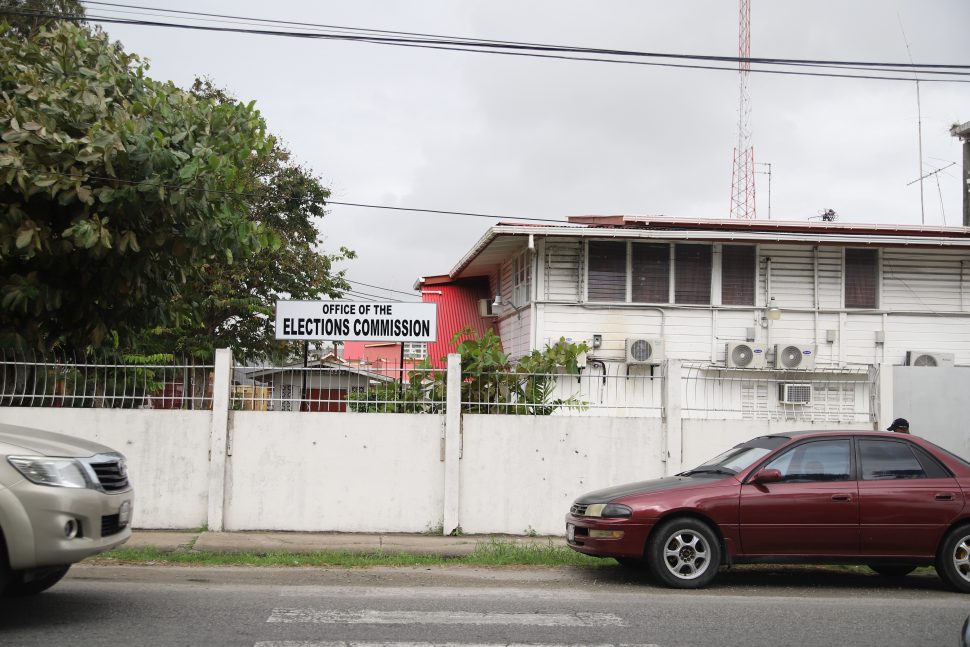Today’s expected statutory meeting of the Guyana Elections Commission (GECOM) has been rescheduled to tomorrow as members of the commission are still to be provided a copy of the Chief Justice’s recent ruling on house-to-house registration, which is expected to inform a highly anticipated decision on the holding of general elections.
“We have not yet received the official decision of the Chief Justice. It was promised today but we now expect to receive the ruling tomorrow and, therefore, the meeting was rescheduled for Wednesday,” government-nominated commissioner Charles Corbin told Stabroek News last evening.
According to Corbin, the commission’s discussions need to be informed by the ruling, which GECOM Chairperson, retired judge Claudette Singh, has indicated should be in her possession today.
The commission last met on Thursday when it was decided that no discussion on the way forward could be had without the written ruling.
“The question on the way forward was not determined in the main because we are still not yet in receipt of the written ruling of the judge and there are those of us who prefer not to rely on reports and third hand information,” government-nominated commissioner Vincent Alexander explained outside GECOM’s High Street office after the Thursday meeting.
One day earlier, acting Chief Justice Roxane George-Wiltshire ruled that the current house-to-house registration exercise is not unconstitutional. The judge, however, cautioned that existing registrants cannot just be deleted from the GECOM database unless certain criteria provided by law are met—that being by death or by specified means of disqualification.
Government spokespersons, including President David Granger, had initially argued that the house-to-house registration was needed to cleanse the voter database of some 200,000 extra names. With the judge’s ruling, however, it is unclear how the government’s concerns will now be addressed outside of the claims and objections process that critics have said should have been utilised instead of national house-to-house registration.
The acting Chief Justice also declined to set a date for elections, while noting that the Caribbean Court of Justice (CCJ) specifically said that it would not be setting a date by which elections were to be held as that was a matter for the politicians and that the court would not intervene in that realm.
It had been expected that following the ruling, GECOM would be in a position to advise President Granger on when it would be ready to hold elections, which became due following the passage of a no-confidence motion against government on December 21st last year.
President Granger had expressed the hope that Justice Singh would communicate to him the Commission’s position within a week’s time.
“We agreed that it is the Elections Commission which is central to this process; it is an electoral process; it is not a governmental process or parliamentary process. It is an electoral process, which is entirely in the hands of the Elections Commission,” the president was quoted as saying by the Ministry of the Presidency on August 9th, upon the conclusion of a meeting between him and Opposition Leader Bharrat Jagdeo.
While Jagdeo has been urging the president to set a date for the polls in order to comply with the constitutional requirements attendant with the passage of the no-confidence motion, Granger has insisted that it is GECOM that has to advise on its readiness to hold the elections.





